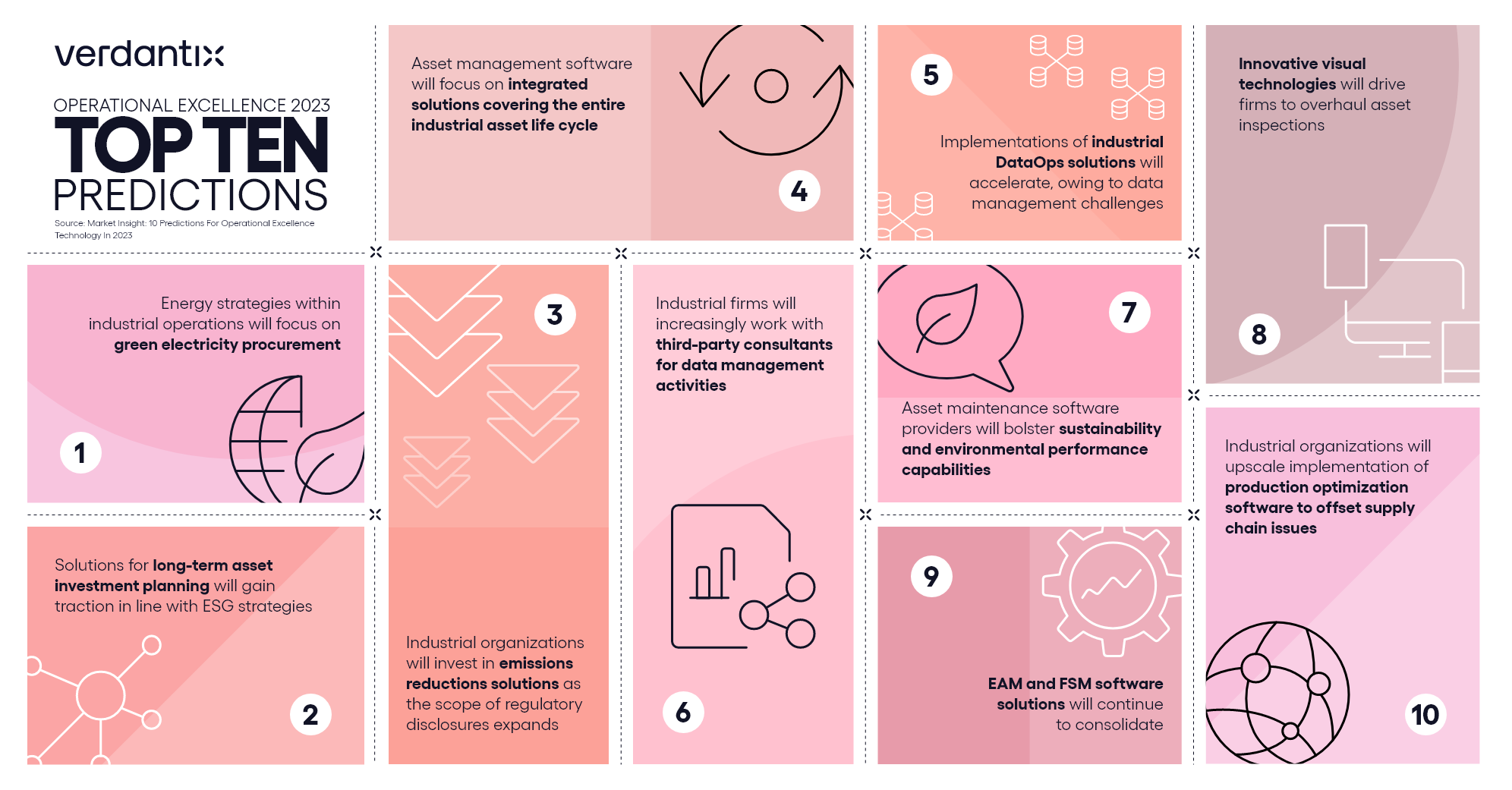Top Ten Trends For Industrial Tech In 2023
In 2022, industrial organizations faced a multitude of challenges: unprecedented energy price increases, the announcement of wide-reaching net-zero legislation, ongoing supply chain disruptions. These developments influenced the adoption of digital solutions for predictive maintenance, asset investment planning, emissions reduction and data management. Drawing on a year's research, the Verdantix Operational Excellence research practice has identified the top 10 developments that are expected to shape the industrial technology market in 2023. Verdantix predicts the following operational excellence trends:
- Energy transition strategies within industrial operations will focus on green electricity procurement.
Industrial organizations will prioritize net-zero goals in 2023, seeking to procure green electricity by leveraging government investment in renewable infrastructure and on-site generation.
- Solutions for long-term asset investment planning will gain traction in line with ESG strategies.
AIP software spend is set to grow as sustainability KPIs integrate with operational strategies.
- Industrial organizations will invest in emissions reductions solutions as the scope of regulatory disclosures expands.
Using innovative technologies such as IoT sensors and combined inspection data, industrial firms will prioritize emissions reduction and ESG reporting.
- Asset management software propositions will focus on integrated solutions covering the entire asset life cycle.
Buyers prefer breadth of applications on a single platform when evaluating industrial asset management software, leading Verdantix to expect further consolidation in the market.
- Implementations of industrial DataOps solutions will accelerate due to data management challenges.
Firms will increasingly seek data aggregation solutions and DataOps platforms to expedite application of advanced analytics for predictive maintenance, production optimization and emissions reduction.
- Industrial firms will increasingly work with third-party consultants for data management activities.
Organizations plan to use third-party consultants for industrial asset data management and governance processes in 2023, with software providers forging new relationships with services firms to meet the anticipated requirements of potential customers.
- Asset maintenance software providers will bolster capabilities to support sustainability and environmental performance.
A growing number of firms are relying on asset maintenance software to achieve sustainability goals, with APM and EAM software providers expanding their capabilities throughout 2023.
- Innovative visual technologies will enable organizations to overhaul asset inspection.
Asset inspections will continue to evolve, with mobile applications, drones and robots increasing automation potential.
- EAM and FSM software solutions will continue to consolidate.
Acquisitions in 2022 and overlapping capabilities demonstrates market readiness to bridge the gap between EAM and FSM software.
- Industrial organizations will upscale implementation of production optimization software to offset supply chain issues.
Firms will prioritize production and yield optimization for 2023, which requires new investment in software to manage supply chain bottlenecks and improve quality, while minimizing wastage due to labour shortages.
For more information, read the full report here: Verdantix Market Insight: 10 Predictions For Operational Excellence Technology In 2023.

About The Author

Henry Kirkman
Industry Analyst





